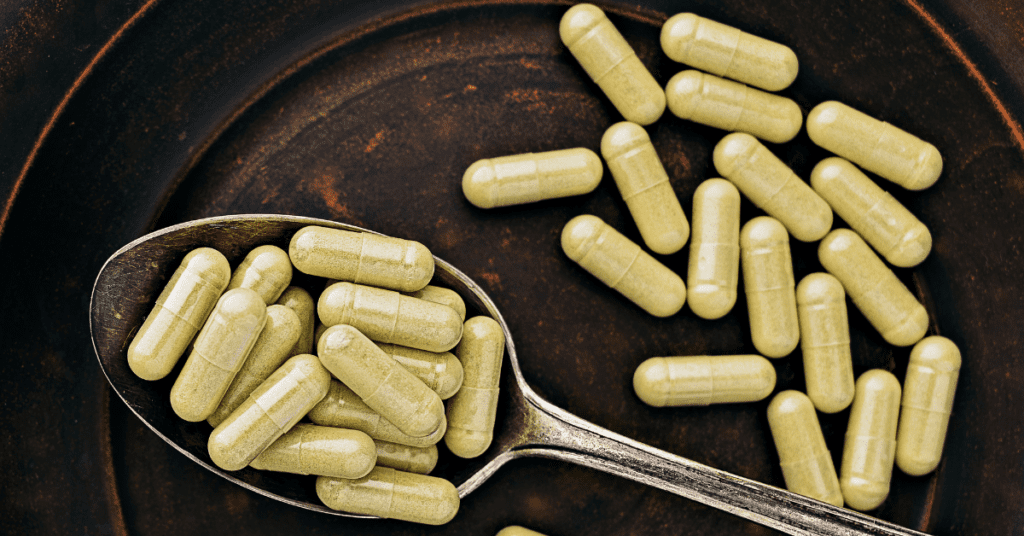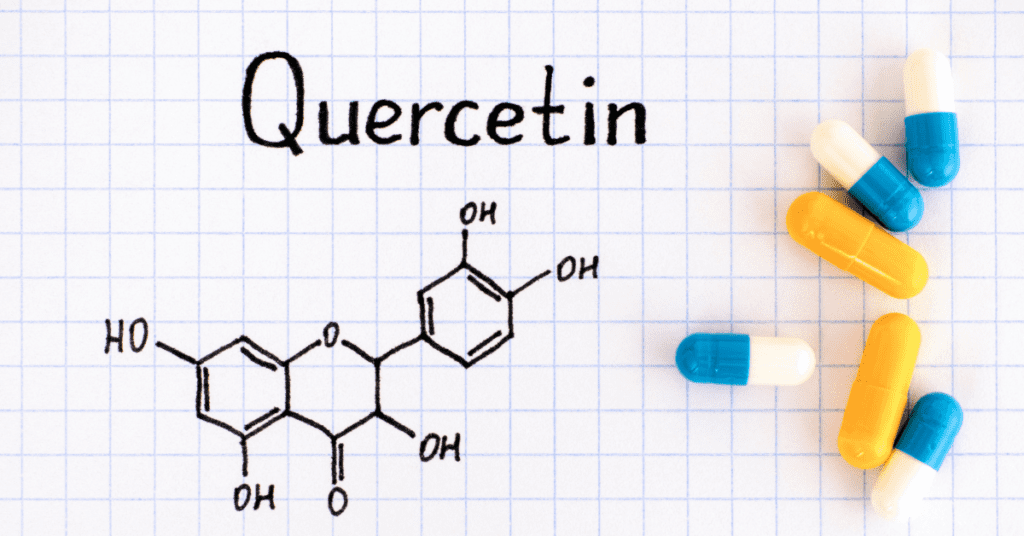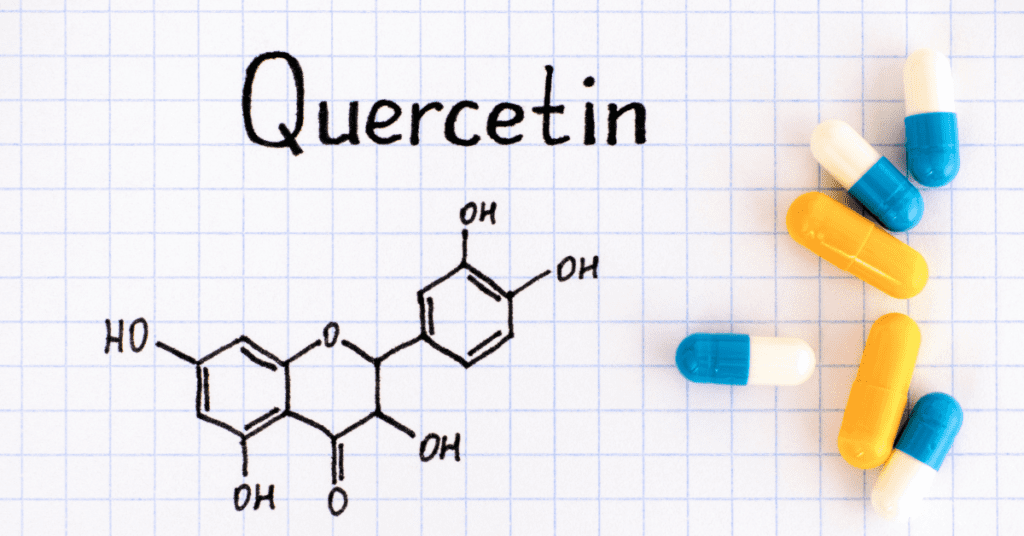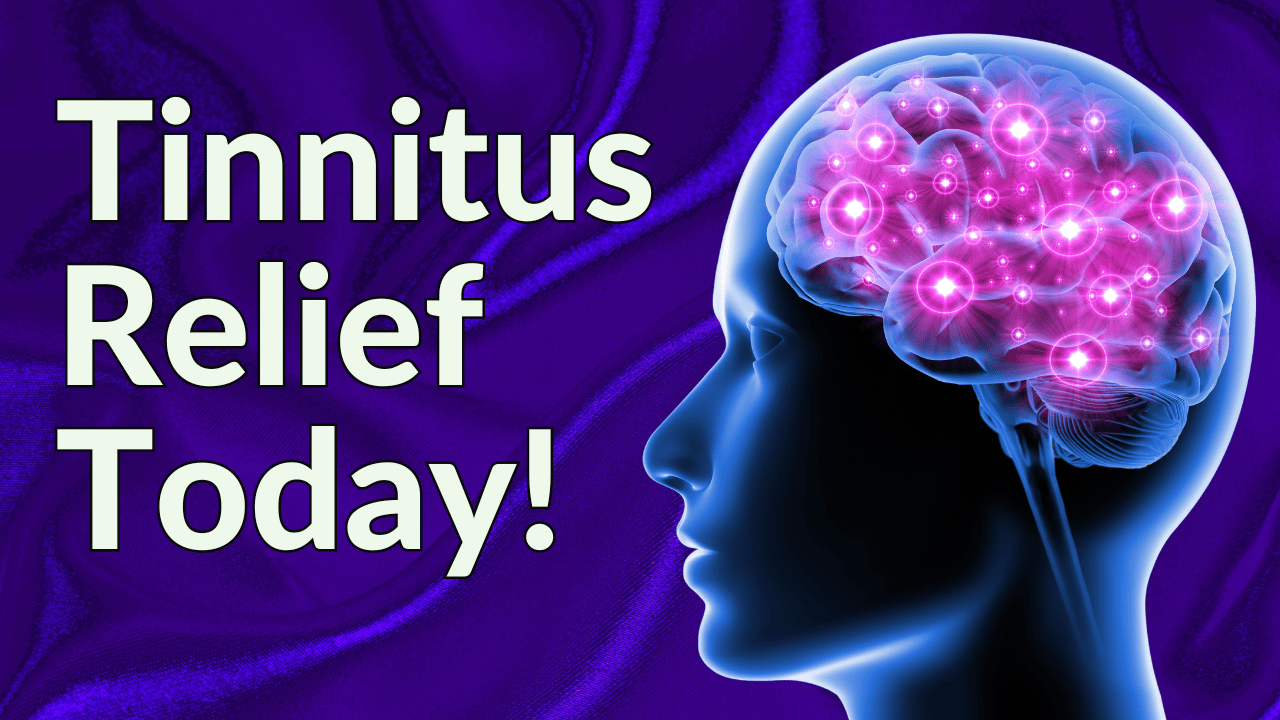Since there is no single cure for tinnitus, many people turn to natural remedies. Quercetin is a naturally occurring flavonoid found in various fruits and vegetables and can be a strong antioxidant and anti-inflammatory. Although this natural remedy has not been approved by the FDA to treat tinnitus, there has been extensive clinical research to explore its efficacy and risks.
What Is Quercetin?
Quercetin is a powerful antioxidant best known for its anti-inflammatory properties, but it’s also used as an anti-hypertensive, anti-obesity, anti-hypercholerosteromic, and anti-antherosclerotic supplement. Most people who take quercetin use it to boost immunity, ease inflammation, quiet allergies, and support good health.
"Treble Health helped me reduce my tinnitus by about 80%, and now I can live my life again!"


"Treble Health helped me reduce my tinnitus by about 80%, and now I can live my life again!"
– Steve D.
Book a free consultation to learn which Treble Health solution is right for you. Join Steve and thousands more who have found lasting tinnitus relief.
Quercetin is usually taken as part of a healthy diet, not a supplement. It is the most abundant antioxidant in the human diet and in fact, if you eat a lot of healthy fruits and vegetables, you may get as much as 500 milligrams of quercetin per day.
Flavonoids And Ginkgo Biloba
Quercetin belongs to a group of plant pigments called flavonoids that have antioxidant properties. Flavonoids are naturally found in many foods like berries, grapes, onions, cherries, broccoli, soybeans, kale, and citrus. Flavonoids and antioxidants work by neutralizing reactive oxygen species, reducing oxidative stress and its harmful effects on cellular health and cell death. For this reason, antioxidants can have tremendous health benefits.
Quercetin is found in many healthy foods, and it’s also one of the flavonoid components of ginkgo biloba – a commonly used in traditional Chinese medicine (TCM) and other herbal remedies. Ginkgo biloba extract includes powerful flavonoids like kaempferol and isorhamnetin, and are a common anti-inflammatory supplement used for many conditions including anxiety, allergies, dementia, cardiovascular diseases, and more. It’s important to note that ginkgo biloba has been used for centuries, but it is not widely recommended for any one condition.
Anti-Inflammatory Benefits Of Quercetin



Quercetin and ginkgo biloba have a long list of potential benefits, and its anti-inflammatory properties are known to provide protection against tissue injury while promoting healing. People suffering from high blood pressure, heart disease, cancer, arthritis, or osteoporosis may benefit from the antioxidant properties of quercetin.
People with heart disease may find anti-inflammatory flavonoids especially beneficial, as studies show that there has been a reduction in the risk of cardiovascular disease among people who had a high intake of flavonoids in their diet.
Quercetin is an anti-inflammatory that prevents cells from releasing histamines, so researchers suggest that quercetin may help reduce allergy symptoms, including runny nose, watery eyes, hives, and swelling of the face and lips. However, most of these effects are anecdotal, and there is not yet strong evidence that it is an effective treatment for allergic reactions.
Many people take ginkgo biloba extract and quercetin to support brain function, and a recent study shows that quercetin is a promising supplement for protecting against neurodegenerative diseases like Alzheimer’s disease. Ginkgo biloba may also help to enhance neural plasticity, which is key to tinnitus retraining therapy. Neuroplasticity is the brain’s ability to retrain itself and adapt to change, so for people with chronic tinnitus, this means learning to ignore the constant phantom sound.
Quercetin is a vasodilator, which means it improves blood flow. Since some cases of subjective tinnitus are related to blood pressure, using this supplement could be useful in quieting tinnitus. Increasing cochlear blood flow and easing high blood pressure may help support your hearing.
Understanding Chronic Subjective Tinnitus
There are many potential causes of tinnitus, but it is most often linked to hearing loss – commonly, hair cell damage in the inner ear leads to hearing loss. Less often outer hair cells may be impacted. These can be related to noise-induced hearing loss, sudden sensorineural hearing loss, age-related hearing loss, an inner ear disorder, or even an injury. Research suggests that inflammation may also play a part in the perception of chronic tinnitus.



Chronic subjective tinnitus can have a tremendous impact on quality of life, and this drives many people to search for tinnitus management. There are several effective treatments available, all of which can make a significant difference in easing chronic tinnitus symptoms.
- Hearing aids. If you have hearing loss, hearing aids are an excellent tool to support your hearing and take the focus off tinnitus.
- Tinnitus retraining therapy (TRT). Tinnitus retraining therapy helps habituate the brain to the tinnitus sounds, making them seem less intrusive and noticeable.
- Cognitive behavioral therapy (CBT). Practicing mindfulness and modifying negative thought patterns can help people cope with the stress of tinnitus.
- Sound therapy. Using external sounds like white noise can mask or distract from tinnitus, which can provide relief.
- Lifestyle modification. Some people have found that switching to a Mediterranean or other anti-inflammatory diet helps with tinnitus.
Some people choose to explore medications, supplements, and other pharmacologic treatments to quiet the ringing in their ears. There is no known medication to stop tinnitus or repair noise-induced hearing loss, but some people feel that supplements with anti-inflammatory qualities can help.
Treating Tinnitus And Hearing Loss With Anti-Inflammatory Dietary Supplements
While research into supplements for tinnitus is ongoing, ginkgo biloba, melatonin, zinc, and various antioxidants like vitamins A, C, and E can have beneficial effects. These dietary supplements are believed to support hearing loss and tinnitus-related factors like blood flow, antioxidant defense, and nerve function. If allergies are the culprit for your tinnitus, the antihistamine-blocking qualities of quercetin may offer some relief. The effectiveness of supplements as a treatment of tinnitus varies from person to person, and no one drug or supplement is known to cure tinnitus or hearing loss.
Clinical Trials Of Herbal Medicines In The Treatment of Tinnitus
The search for a tinnitus cure is ongoing, and some researchers have found promising treatments using herbal medicines or traditional Chinese medicine.
A recent study using randomized controlled trials discovered that ginkgo biloba, along with antioxidants, may be an effective way to treat tinnitus. This study used the Tinnitus Handicap Index (THI), Visual Analogue Score (VAS), and Short Form 36 (SF-36) health scores and discovered that people who took antioxidants showed a marked improvement. The study also adds that “Ginkgo biloba has been reported to have restorative effects in neuron metabolism and neurotransmitter system.” Despite this promising evidence, there is still more research needed supporting the use of quercetin or ginkgo biloba extract to treat tinnitus or hearing loss.



Ginkgo biloba is the most widely investigated anti-inflammatory herbal medicine for tinnitus; however, clinical trials have produced conflicting results. Considering this, the effectiveness of ginkgo biloba for treating chronic tinnitus is inconclusive.
According to a study, quercetin is shown not to have a negative effect on the inner ear, and may even have a positive effect in protecting the ear against ototoxic medications. This test used rats to explore ear damage caused by a medication called cisplatin, which is known to cause irreversible acquired sensorineural hearing loss in both ears, however, quercetin was shown to be effective in combating these effects.
Safety And Side Effects Of Quercetin
Even though quercetin is mostly found in healthy foods like berries and leafy greens, there are potential side effects if you take too much.
Quercetin supplements can cause headache or an upset stomach, and there may be interactions with certain medications like antibiotics, chemotherapy medications, corticosteroids, and blood thinners. People with kidney disease should avoid quercetin supplements and certain foods high in quercetin, since it could cause further kidney damage.
Quercetin is generally safe, but there is not enough evidence to recommend quercetin as a supplement for children, or for those who are pregnant or breastfeeding. As with all supplements, always consult your physician before adding something new to your diet .
While further research is still needed to support the use of quercetin or other anti-inflammatory dietary supplements as a treatment of tinnitus, the risk factors are minimal for most people.
Bottom Line: Is Quercetin A Good Treatment For Tinnitus?
Ultimately, the choice to add anti-inflammatory supplements like quercetin to your diet is up to you. Adding vitamin-rich fruits and vegetables to your diet is almost always a wise choice, and making healthy food and lifestyle choices is an important part of supporting your hearing. Although there is no explicit evidence that quercetin is good for treating tinnitus, the added nutrients in your diet may be beneficial.
Next Step: Book Free Consultation
- 75% of patients reduced their tinnitus within three months after following our recommendations.
- "I feel like Treble Health literally gave me my life back." - Randy S. (verified customer)
- Join thousands of people who have reduced their tinnitus after scheduling a free consultation.


















